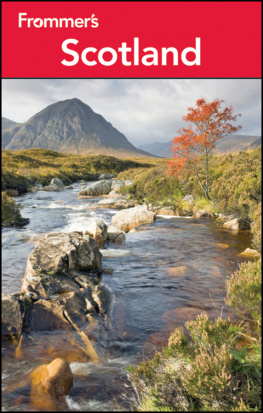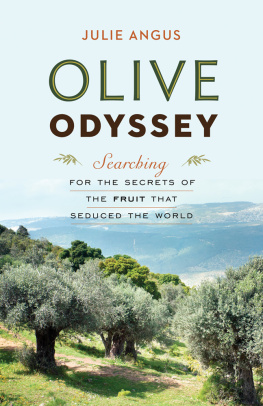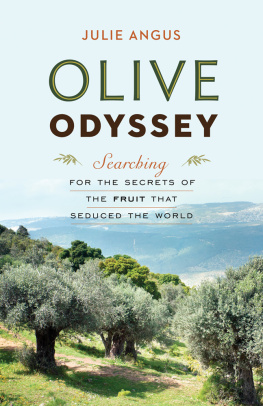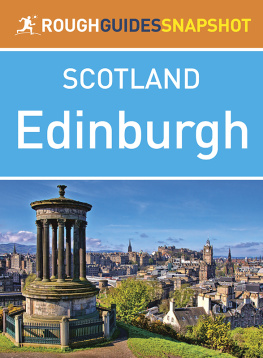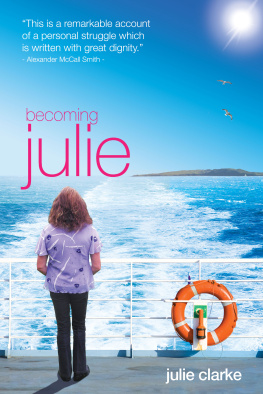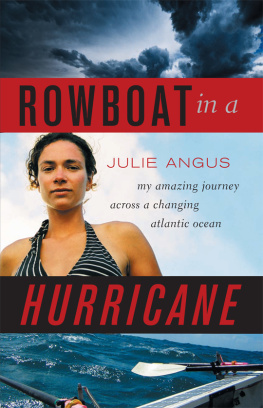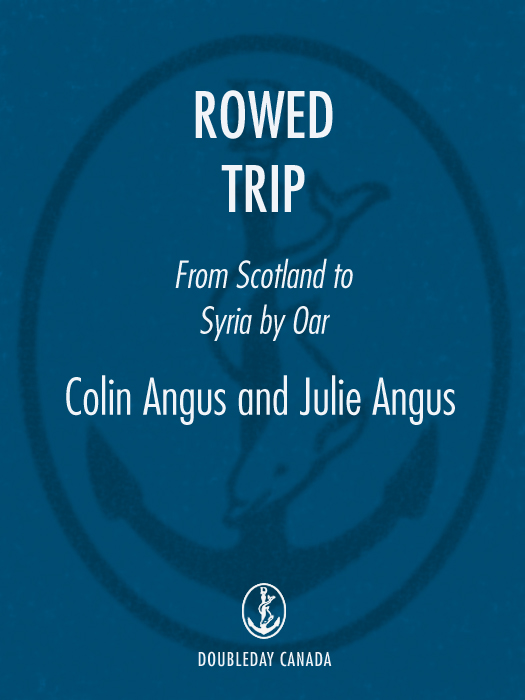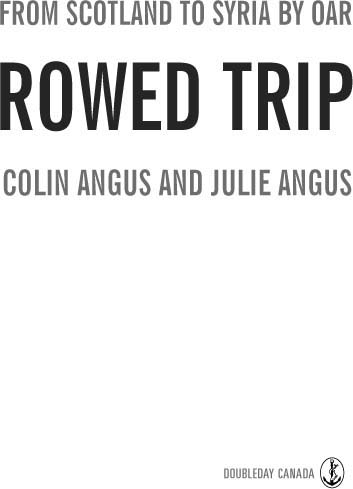CONTENTS
1: THE RIGOURS AHEAD
SCOTLAND (Colin)
2: YOU WONT STAND A CHANCE IN THOSE BOATS
ENGLAND (Julie)
3: THE TRAILER VANISHES
FRANCE (Colin)
4: MAINZ ATTRACTIONS
GERMANY (Julie)
5: IS IT A DOG? IS IT A BEAR?
AUSTRIA (Colin)
6: A PEST-INFESTED VESTIBULE
SLOVAKIA (Julie)
7: SEEING GOD
HUNGARY (Colin)
8: MINEFIELD
CROATIA (Julie)
9: NEW FAVOURITE COUNTRY
SERBIA (Colin)
10: BACK IN THE EU
BULGARIA (Julie)
11: CANAL OF DEATH
ROMANIA (Colin)
12: WEDDING ANNIVERSARY
BULGARIA AGAIN (Julie)
13: DANGEROUS BEAUTY
TURKEY (Colin)
14: JUST LIKE OUR FAMILY
SYRIA (Julie)
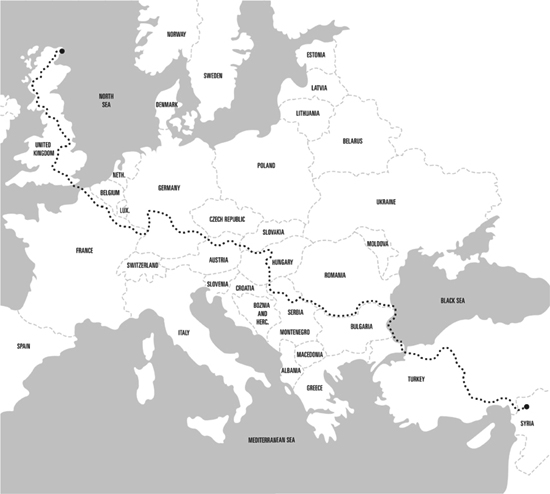
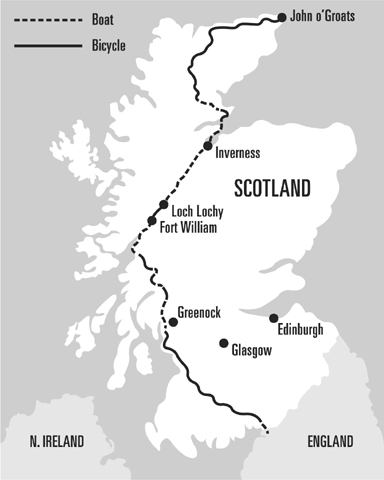
1
THE RIGOURS AHEAD
SCOTLAND (Colin)
M Y FAMILY TREE IS NOT LUSH AND BOUNTIFUL . Instead, its branches have been savagely pruned; sometimes entire limbs were sheared off by the Darwinian forces at play in Scotlands far north. Traditionally, whisky production and fishing were the main livelihoods, meaning that those who didnt succumb to the sea were liable to drink themselves to death. When I was a young boy, my mother would tell me stories about her homeland. My eyes opened wide as she regaled me with tales of hairy cows, vast moors of mist-drenched heather and men who wore skirts yet had the fortitude to stare down the Romans.
I was intrigued by this distant nation, awed by my mothers stories, and I knew that, through my heritage, I was indelibly connected to Scotland. Along with the tales of Robert Louis Stevenson told to me as I drifted to sleep, my mothers Scotland was filed in the part of my memory reserved for fiction, fantasy and folklore. And like the children in The Lion, the Witch and the Wardrobe, I felt I had a secret connection to another world. I was sure that one day I would make that journey.
That day arrived in early March 2008. My wife, Julie, and I slipped over the border from England in a rental Dodge Caravan with two homemade rowboats strapped to the roof. The interior of the vehicle was in shambles, jammed to the ceiling with camping gear, bicycles, cameras, oars and a miscellany of other equipment. As we ventured farther north, following single-track lanes through unpopulated moors, horizontal rain and gale-force winds buffeted our top-heavy vehicle. Dark clouds scudded towards the elongated black hole of a horizon, and sodden sheep stood with their rumps to the wind.
It was a really gay day, wasnt it? Julie said, breaking an extended period of silence.
What was a gay day?
The day we decided to do this trip.
I wasnt sure if she meant it was a happy day, which it was, or if the decision we made that day, which led to committing ourselves to a desolate, freezing world with only a tent for shelter and 7,000 kilometres to travel using only our arms and legs, was a dumb idea. A South Park kind of gay.
I slowed the vehicle to allow a mass of soggy wool to cross the road. The trailing shepherd nodded to us, his face lost in the shadowy folds of a black poncho.
I suppose so, I said. Im sure this weather will clear up shortly.
Wed come up with the idea for this journey two years earlier on a sunny day in Germany. At that time, Julie and I were engaged and were inadvertently testing the bonds of our relationship by travelling together from Moscow to Vancouver solely by human power. The crux of the expedition was a 10,000-kilometre row (yes, row, as in propelling a tippy little boat on a pond) across the Atlantic Ocean. As we cycled across Europe, most of our thoughts were focused on the maritime challenge ahead, instead of the rich cultures, landscapes and architecture around us. And because of the urgency of reaching the Atlantic Ocean ahead of the stormy season, our route was mainly confined to busy highways.
On occasion, these vast ribbons of fumy asphalt traversed rivers or canals, and we paused on the bridges to observe the scene below. River barges, rowboats and sailing dinghies plied murky waters bordered by orchards, farm fields and stone villages. Paths often flanked these waterways, and we watched enviously as cyclists followed meandering courses to nowhere.
We noticed the road atlas we were using to navigate across Europe also outlined the waterways, and closer examination revealed Europes labyrinth of water corridors. Julie traced a route of interconnected canals, rivers and coastlines that led from my parents homeland of Scotland past her mothers home in Germany and on to Syria, where her father comes from. We could paddle all the way from Scotland to Syria and visit our relatives, she said half-seriously.
Whether this comment was made in jest or not, a seed was planted. Over the following months, we researched the possibility of paddling or rowing from Britain to the Middle East. My family comes from Caithness in Scotlands most northeastern corner, so this was where we would start. From there, we could follow a network of canals, lakes, rivers and shorelines all the way through Britain to Dover. Wed row across the English Channel, then journey into Europes interior by paddling up the Rhine River or navigating Frances extensive network of canals. The European continental divide would be crossed on the manmade Rhine-Main-Danube Canal, which connects the Rhine River and the Danube. And once the headwaters of the Danube were reached, it would be possible to voyage downstream to the Black Sea, through the Bosporus and finally on the Mediterranean to Syria.
The plan appealed to our sense of adventure, but more importantly it promised to be a journey that would allow us to explore our roots in a more compelling fashion than a quick online genealogy search followed by a two-week tour package being bused to tourist shops selling stuffed Loch Ness monsters, Middle Eastern rugs and the made-in-China American Indian knick-knacks. No, this would be a seat-of-your-pants adventure that would immerse Julie and me into the cultural and physical forces that had shaped our families and made us who we are. It would give us greater perspective not only on our heritage but also on the distances and lands separating the regions we come from.
The more we researched, though, the more we unearthed questions we could not answer. Would we be able to make our way against the swift current of the Rhine River? Would a human-powered craft be allowed to navigate the canal locks that are normally used by power boats? How difficult would voyaging the British coast be in late winter?
There was too much uncertainty, and although it was theoretically possible to travel on water for every inch of the journey, we felt an efficient portage system was required. Julie and I pondered the various possibilities, from lightweight canoes with padded yokes to sea kayaks and rugged dollies. We came to the conclusion that nothing on the market met our needs.


